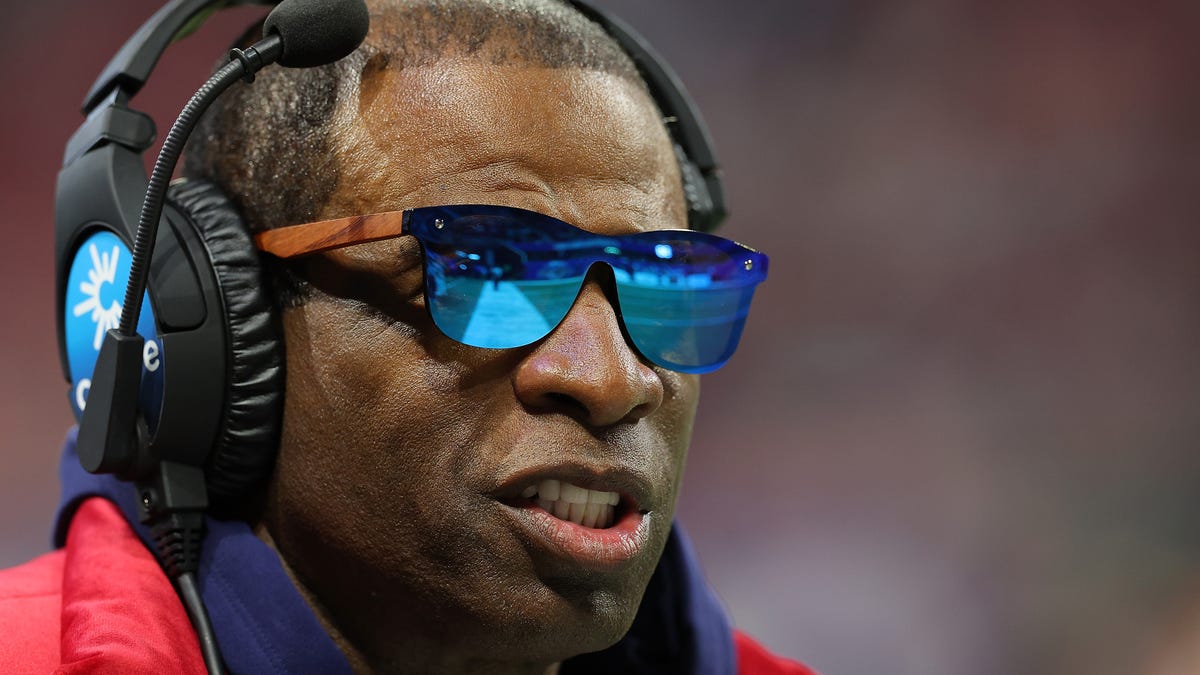
Putting the cart before the horse never works — especially for a coach that has a history of coming up short.
When Sports Illustrated put Deion Sanders, Shedeur Sanders, and Travis Hunter on the cover of their magazine back in June, it was a slap in the face to South Carolina State University and HBCU football as a whole. The publication had committed itself to flash over substance, as they chose to highlight a team that lost the Celebration Bowl — the HBCU National Championship — 31-10.
The spoils are supposed to go to the victors, not the losers. Maybe that will change in 2023, as Deion Sanders just lost the most important game on the schedule for the second consecutive year to a program from the Carolinas.
While this may come as a shock to so many of you that became overnight scholars on the inner workings of HBCU culture and athletics, you should know that HBCU football had been around for decades before Sanders ever decided to be on the payroll at one for less than three years. Since 2015, the Celebration Bowl has taken place in Atlanta to crown a national champion in HBCU football, and six of the seven times the champion has come from the Carolinas. In 2015, 2017, 2018, and 2019, the Aggies from North Carolina A&T dominated. Last year, the Bulldogs from South Carolina State obliterated Sanders and Jackson State. And last weekend, North Carolina Central knocked off the Tigers 41-34 in overtime. In every edition of the Celebration Bowl — which is a showdown between the best from the Mid-Eastern Athletic Conference (MEAC) and the Southwestern Athletic Conference (SWAC) — the MEAC team representative has been from the Carolinas, as Grambling State’s 10-9 victory over North Carolina Central in 2016 was the lone victory for the SWAC.
G/O Media may get a commission
Some of you just read that last paragraph and scratched your head. You’re wondering how you were unaware that the Carolinas and the MEAC had been dominating HBCU football and the Celebration Bowl in the era of “Coach Prime.”
The reason you’re bewildered is that you never cared in the first place.
From the national press to the debates that were happening on social media, the conversations around HBCU culture and athletics were hijacked the moment Sanders took the job at Jackson State. People — both Black and white — who had never spent an hour on an HBCU campus outside of possibly visiting for homecoming, or ever cared about the SWAC, MEAC, or the legacy of the Tigers’ program, now knew what was “good for HBCUs” without having an inkling of how they operate. And because of this, the voices, publications, and alums who understood the context and knew the facts were overshadowed all because ESPN’s College Gameday decided to show up. Some of us knew that Jackson State was destined for trouble with SCSU in 2021, and wasn’t the favorite against NCCU. But we were ignored.
“Deion apparently didn’t want to have anything to do with me leading up to the game,” said NCCU head coach Trei Oliver. “He didn’t come to the (pregame) press conference. So, he wasn’t around at any events that I was at. I didn’t have any words for him and he didn’t have any words for me. “We shook hands and kept it moving.”
“That made it so much sweeter,” Oliver added, “to send him on his way to Colorado or wherever else he’s going, ‘and-1.’ He’d been talking all this ‘and-0’ stuff, ‘and-0,’ and they’re going to dominate. So he can take that ‘and-1’ with him to Boulder, Colorado.”
When Sanders gets to Colorado it will be a rude awakening for him, as he’ll take his 27-6 record to a program that’s coming off a 1-11 season. The Buffaloes’ 2023 schedule includes games against TCU, Nebraska, USC, Oregon, UCLA, and Utah. Their 2024 slate opens with a game against North Dakota State, which is playing in the FCS National Championship Game in a few weeks. The Bison have won nine FCS national titles since 2011.
The “Coach Prime” era at Jackson State was always going to be a slippery slope for HBCUs because the man who tried to be the savior of HBCU football was never going to stick around long enough to graduate a single recruiting class. Contrary to popular opinion, not all PR is good PR. And with Sanders’ pimping of Jackson State and HBCU culture finally over, there will certainly be an adjustment period as all the attention, debates, and coverage that his tenure created is bound to go away faster than it appeared, given that HBCUs have never been a focal point for Americans — both Black and white.
There is a lesson here, however. And it’s one in understanding, respecting, and listening to the ones who were here before the cameras, and still will be after they’re gone. HBCU applications and enrollment have been on the uptick for years, and it has had nothing to do with Deion Sanders, football, or top-tier prospects flirting/lying about the idea of turning down a Power 5 program to attend one. It’s been due to the Black Lives Matter movement and the racial happenings that have occurred in this country within the last decade. Students are realizing the importance of HBCUs and want to go home — and football and a faux savior have nothing to do with it.



